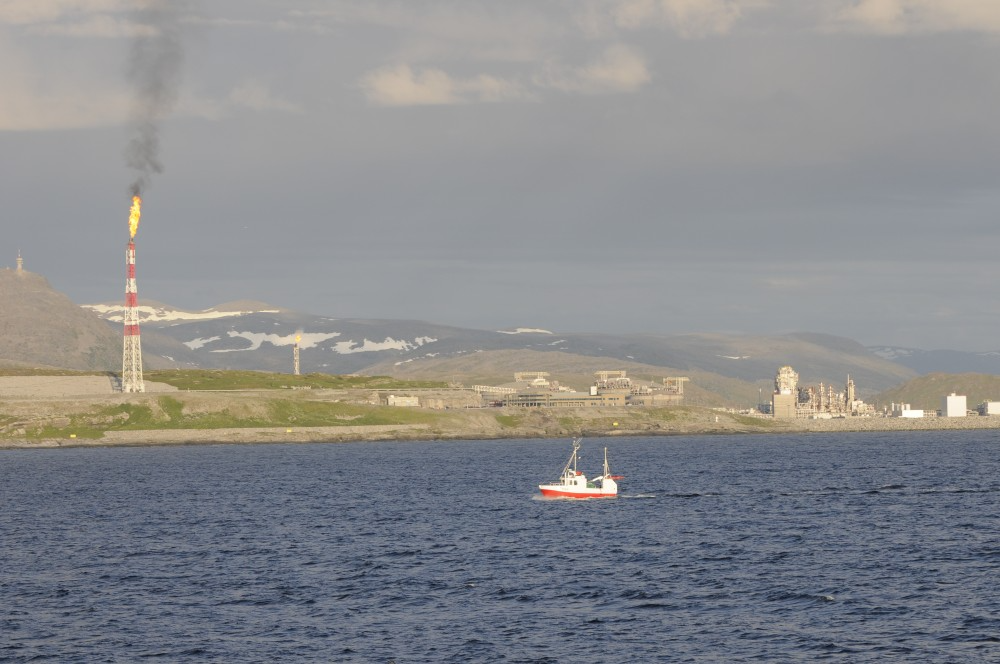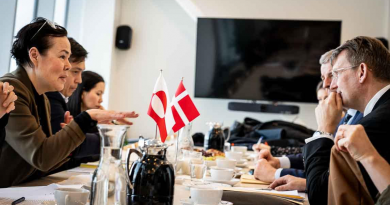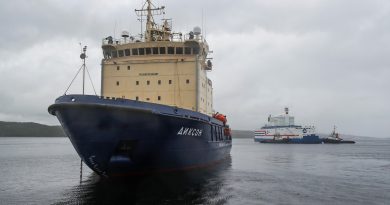In bid to tap Arctic gas, Norway eyes pipeline connection to Barents Sea

The Norwegian government might support the building of a far northern natural gas pipeline.
A report commissioned by the country’s Ministry of Petroleum and Energy proposes to extend the Norwegian gas pipeline grid to the Barents Sea.
It will be economically favourable to build new gas infrastructure based on proven resources in the area, the authors of the report conclude, and add that “there is a potential for significant additional resources adjacent to existing and planned field infrastructure.”
Of the various alternative solutions studied, it is the development of a so-called Dew Point Control Unit (DPCU) with a pipeline connection that will be the economically most favourable, the report reads
It is written by Gassco, the Norwegian state transportation company for natural gas.
Confident of vast resources
Today, the Norwegian pipeline grid stretches north to the Aasta Hansteen field in the Norwegian Sea. An extension to the Barents Sea would be several hundred kilometre long and cost billion of euros.
“Today’s export capacity from the Barents Sea is limited to the Hammerfest LNG [and] without increased capacity other gas resources [in the region] will be locked in for a long time,” Minister of Petroleum and Energy Terje Aasland says in a comment.
He appears confident that the far northern waters hold vast resources of hydrocarbons.
“The Barents Sea is the area with the biggest expectations for undiscovered gas resources and the lack of available export capacities affects the companies’ interest in exploration,” he underlines.
Minster Aasland is eager to start development.
“I now have a clear expectation that the key companies active in the Barents Sea are aware of their responsibility […]. They must turn over every stone to find more natural gas in the Barents Sea and continue the work to develop gas export capacities from the area.”
Sparse discoveries in Barents Sea over last decade
However, despite major expectations, oil companies have made sparse discoveries in the Barents Sea over the past decade. Today, there is only one natural gas field in operation, the Snøhvit, and one oil field – the Goliat. In addition, Equinor is in the process of developing the Castberg field, due to come into production in 2024.
The petro-hunger of the Norwegian government is also strongly criticized by opposition parties and environmentalists who argue that the plans contradict undertaken climate obligations and that the EU will not need the additional gas by the time the pipeline is built.
It is not the first time that a gas pipeline to the Barents Sea has been on the Norwegian government’s agenda. In 2020, another report proposed the building of a new ‘Barents Stream’ pipeline that could fuel Europe with Arctic gas.
Following Moscow’s onslaught on Ukraine and the subsequent EU sanctions against Russia, Norway has boosted its position in European energy security and now provides about 25 percent of EU consumption.
Related stories from around the North:
Canada: Yukon gov’t boasts of ‘strongest economy in Canada,’ tables $48M surplus budget, CBC News
Norway: Norway’s oil minister: “We need new discoveries”, The Independent Barents Observer
Russia: Crisis-ridden Russian gas industry looks to Arctic for more LNG, The Independent Barents Observer
United States: Conservation groups sue to block Willow oil project on Alaska’s North Slope, Alaska Public Media



